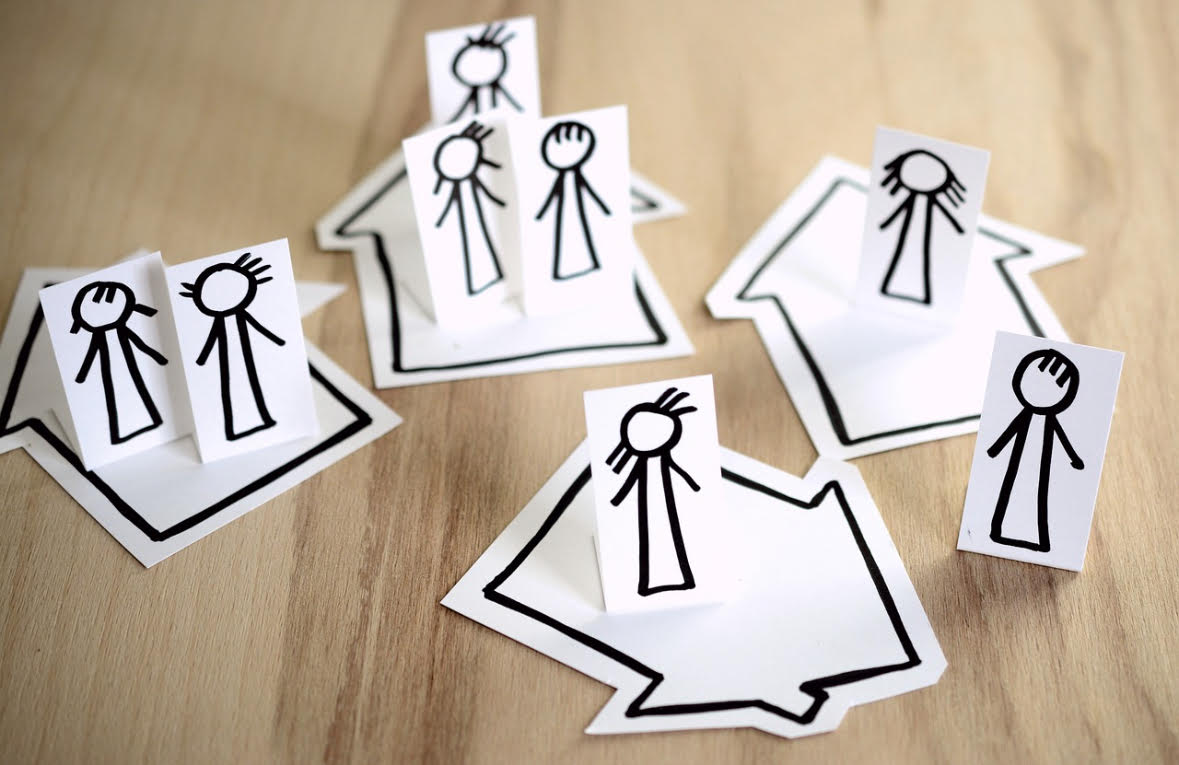Las familias, como sistemas complejos de interacción, son más que un conjunto de individuos conectados por lazos sanguíneos. A lo largo del tiempo, se crean narrativas compartidas, creencias y «mitos» que influencian el comportamiento y las relaciones dentro de ese sistema. Estos mitos familiares, aunque a menudo no son conscientes, afectan profundamente la forma en que los miembros se perciben a sí mismos, interactúan entre sí y se relacionan con el mundo exterior.
En este artículo exploraremos qué son los mitos familiares, cómo se forman, su impacto en la dinámica familiar, y cómo pueden ser desafiados o transformados para promover un ambiente más saludable.
Qué son los mitos familiares?
Los mitos familiares son historias, normas no escritas o creencias compartidas que explican el comportamiento, los valores y las interacciones dentro de una familia. A menudo, estos mitos no se cuestionan y son aceptados como verdades absolutas. Pueden incluir reglas sobre cómo debe comportarse cada miembro, qué emociones son aceptables o inaceptables, o incluso los roles que deben cumplir los diferentes miembros dentro del sistema familiar.
Por ejemplo, un mito común podría ser el de «la familia siempre debe mantenerse unida, sin importar lo que pase». Este mito puede generar expectativas poco realistas y conflictos cuando los miembros de la familia no cumplen con dicha creencia.
Formación de los mitos familiares
Los mitos familiares no se crean de manera deliberada; más bien, emergen a través de las interacciones cotidianas y las narrativas transmitidas de generación en generación. Los padres, abuelos y otros miembros mayores de la familia a menudo inculcan estos mitos, a veces de manera explícita, pero con frecuencia a través de ejemplos o expectativas implícitas.
Los mitos también pueden estar vinculados a eventos significativos en la historia familiar, como la migración, la enfermedad, o la pérdida de un ser querido. A medida que los miembros de la familia intentan dar sentido a estos eventos, pueden construir narrativas que los ayuden a hacer frente, pero también pueden generar creencias limitantes o disfuncionales.
Tipos comunes de mitos familiares
1. Mitos sobre el rol de los miembros: A menudo las familias asignan roles a sus miembros de forma inconsciente, como el «líder«, el «cuidador«, el «rebelde«, o el «chico malo«. Estos roles, aunque pueden tener un propósito a corto plazo, limitan el crecimiento y la libertad personal.
2. Mitos sobre las emociones: En algunas familias, puede existir el mito de que las emociones son débiles o inadecuadas. «No llores«, «los hombres no deben mostrar sentimientos«, o «es inaceptable enojarse en esta familia» son ejemplos de cómo ciertos sentimientos pueden ser suprimidos o malinterpretados.
3. Mitos sobre el éxito y el fracaso: Las familias a menudo tienen creencias profundamente arraigadas sobre el éxito y el fracaso. Algunas pueden inculcar la idea de que «si no eres exitoso, no eres valioso» o «el fracaso es un reflejo de la debilidad del carácter«.
4. Mitos sobre la relación entre generaciones*: «Los jóvenes no entienden nada» o «los mayores siempre tienen la razón» son ejemplos de cómo las generaciones dentro de una familia pueden mantener creencias que afectan la comunicación y el respeto mutuo.
Impacto de los mitos familiares en la dinámica familiar
Los mitos familiares tienen un profundo impacto en la forma en que los miembros de la familia se relacionan entre sí y en la construcción de la identidad individual de cada miembro.
– Afectación de la autoestima: Cuando los mitos familiares refuerzan la idea de que solo ciertos comportamientos o logros son válidos, los miembros pueden sentir que no cumplen con las expectativas, lo que impacta negativamente en su autoestima.
– Conformidad y sumisión: Los miembros de la familia pueden sentirse presionados a cumplir con los roles asignados, incluso si estos no reflejan su verdadero yo, lo que puede llevar a conflictos internos o resentimientos.
– Ciclos intergeneracionales: Muchas veces, los mitos familiares se transmiten de una generación a otra, creando ciclos de comportamiento disfuncional. Por ejemplo, si en una familia se valora excesivamente el éxito material, los descendientes pueden sentir que su valor está basado únicamente en sus logros, perpetuando un enfoque superficial del éxito.
Desafiando y transformando los mitos familiares
Es posible cambiar o desafiar los mitos familiares, aunque este proceso suele ser complejo y requiere tiempo y reflexión. Aquí algunos pasos que pueden ser útiles:
1. Conciencia y reflexión: El primer paso es identificar los mitos familiares que operan en la vida diaria. ¿Qué creencias o narrativas se repiten constantemente en tu familia? ¿Qué emociones o comportamientos parecen estar «prohibidos» o poco aceptados?
2. Diálogo abierto: Fomentar la comunicación abierta y honesta dentro de la familia puede ayudar a cuestionar los mitos y ofrecer nuevas perspectivas. La terapia familiar también puede ser una herramienta efectiva para explorar y transformar estos mitos.
3. Promoción de nuevas narrativas: A medida que se identifican los mitos disfuncionales, se puede trabajar en la creación de nuevas historias familiares más saludables, basadas en la aceptación, el respeto y la autenticidad.
4. Cuidado personal y autoestima: Para los individuos que han crecido bajo ciertos mitos familiares, el trabajo personal en el fortalecimiento de la autoestima y la identidad propia es esencial para liberarse de estos patrones limitantes.
Conclusión
Los mitos familiares son creencias profundamente arraigadas que influyen en la forma en que los miembros de una familia se perciben a sí mismos y se relacionan entre sí. Estos mitos pueden ser beneficiosos en algunos casos, pero cuando se vuelven disfuncionales, pueden crear conflictos y dificultades emocionales. Reconocer estos mitos y trabajar en su transformación puede ser un paso crucial para crear una dinámica familiar más saludable y fomentar el bienestar individual de cada miembro.



